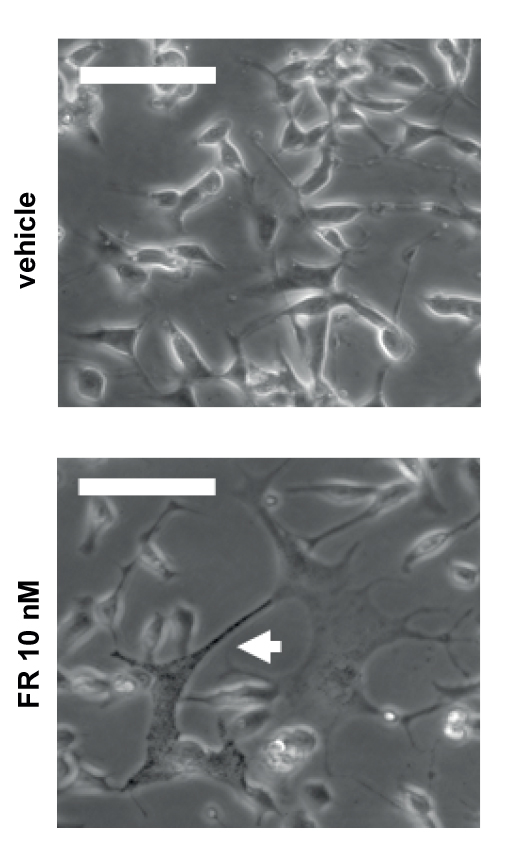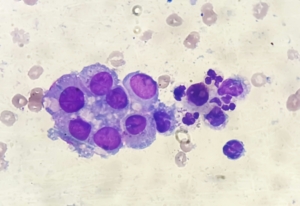
New approach to treat eye cancer
A research team from Germany and Mexico has successfully targeted uveal melanoma (UM), the most common type of eye cancer.
Somatic gain-of-function mutations of GNAQ and GNA11, which encode ? subunits of heterotrimeric G?q/11 proteins, occur in about 85% of cases of uveal melanoma (UM), the most common cancer of the adult eye. Molecular therapies to directly target these oncoproteins are lacking, and current treatment options rely on radiation, surgery, or inhibition of effector molecules downstream of these G proteins. A hallmark feature of oncogenic G?q/11 proteins is their reduced intrinsic rate of hydrolysis of guanosine triphosphate (GTP), which results in their accumulation in the GTP-bound, active state.
Here, Suvi Annala and colleagues zeroed in on the therapeutic potential of FR900359, a cyclic depsipeptide that has successfully inhibited G?q/11 proteins in previous cell experiments. They administered FR to UM cells and found that it suppressed their proliferation and reduced their metabolic activity. Further analysis showed FR exerted these effects by silencing signaling of the mitogenic ERK pathway, which promotes the pro-cancer activity of mutant G?q/11. The peptide also inhibited tumor growth by 72% after 14 days of treatment in mice harboring UM cells driven by mutant G?q, indicating that FR and similar molecules hold promise as potential treatment options for UM. Researchers should also consider strategies to deliver FR specifically to cancer cells while avoiding interfering with G protein signaling in healthy cells, the authors say.
Visual: A related visual is available.


 Unsplash+
Unsplash+
